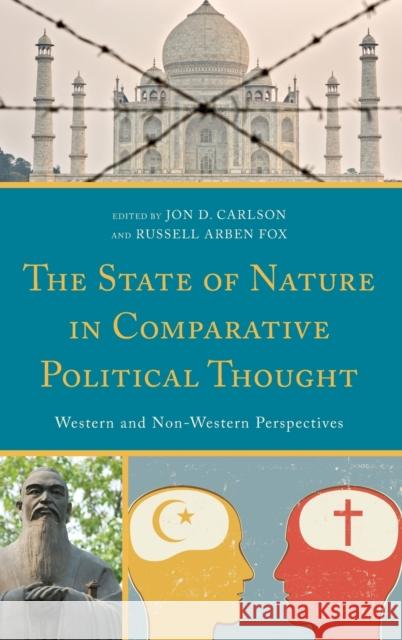The State of Nature in Comparative Political Thought: Western and Non-Western Perspectives » książka
The State of Nature in Comparative Political Thought: Western and Non-Western Perspectives
ISBN-13: 9780739167632 / Angielski / Twarda / 2013 / 328 str.
This book addresses a fundamental concept in political thought--the "state of nature"--through a comparative and cross-cultural approach. Western social contract thinking usually falls along lines identified with scholars like Hobbes or Rousseau, with accordant debate over whether humans are good, bad, or just selfish; conflict prone or cooperative; egocentric or altruistic; with subordinate discussions about the proper limits of sovereign authority. Depending on how one views the "natural" condition of human beings and the communities which they build, various questions arise. What constitutes a "good" or natural political order? What is the best basis for understanding the "nature" of sovereignty or political legitimacy, and what is its future? In an age of increased global interaction and potential cultural, civilization-based, misunderstanding, this volume takes the Hobbesian rhetorical device of a pre-social contract "state of nature" and seeks to address this concept--and thereby, many of the aforementioned questions--in light of contributions from non-Western thinkers. In our globalizing age when cultures and peoples increasingly talk and interact, it is not viable to use only Western political thinkers to address allegedly universal concepts. So we overtly seek to break open the frame of reference for any future discussion of the "state of nature." This volume adds to the emerging body of work grouped under the heading "comparative political thought" and serves as a model for how key political concepts may be addressed in a comparative and cross-civilizational manner. Chapters engage Chinese, Indic, Polynesian, Jewish, Babylonian, and Islamic interpretations of this fundamental question of politics. In addressing competing interpretations of the state of nature, the exclusionary hegemonic aspects of the Western canon may be both exposed and potentially reconciled with alternative visions of political behavior, legitimacy, justice, rights, and "appropriate" social and political behavior.











